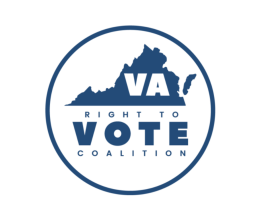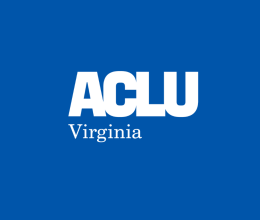
RICHMOND, VA – Today, the U.S. District Court for the Eastern District of Virginia ruled that a lawsuit challenging Virginia's felony disenfranchisement law has merit and can proceed. The ACLU of Virginia, WilmerHale, and Protect Democracy filed the suit last year on behalf of individual Virginians, who are currently disqualified from voting under Virginia law despite having served their time in prison, as well as Bridging the Gap in Virginia, a Virginia-based organization that provides reentry support for the formerly incarcerated.
The first-of-its-kind suit claims that Virginia’s permanent disenfranchisement for all felonies violates the Virginia Readmission Act—one of several federal laws passed during Reconstruction that prohibited former Confederate states from depriving their citizens of the right to vote except as punishment for a narrow set of felonies.
After the Civil War, Virginia and other Southern states changed their laws to prevent newly freed Black voters from casting their votes. They did so, in part, by manipulating their criminal codes to expand the types of crimes that triggered disenfranchisement with the specific intent to strip Black people of their voting rights. Today, as a direct consequence, at least 300,000 Virginians are disenfranchised due to a felony conviction. This has had the greatest impact on Black Virginians, who make up less than 20 percent of Virginia's voting-age population, yet account for nearly half of Virginians who are disenfranchised due to felony convictions.
The Court's decision allows Plaintiff's claim under the Virginia Readmission Act to proceed; the Court dismissed Plaintiffs' separate claims under the Eighth Amendment and Section 1983. The Court also dismissed organizational Plaintiff Bridging the Gap from the case.
In response to the ruling, Vishal Agraharkar, Supervising Attorney at the ACLU of Virginia, released the following statement:
“Virginia may no longer be a Confederate state, but the provision of our constitution that was specifically put in place to suppress the voting rights of newly enfranchised Black citizens after the Civil War is still oppressing Virginians today. Virginia is the only state in the country to automatically take away a person’s right to vote after any felony conviction and then require them to individually petition the governor who applies unknown criteria to get it back. Virginia is still living in the past, but by allowing our case to proceed today, the court demonstrated that it’s never too late to work for justice.”
Brittany Amadi, Partner at WilmerHale, said:
“The Virginia Readmission Act is very clear: Virginia’s Constitution can disenfranchise someone only if they’re convicted of something that was a felony at common law in 1870—a narrow set of felonies that does not include drug crimes for example. But many Virginians who lose their right to vote today were convicted of crimes no one had even heard of in 1870. By disenfranchising anyone convicted of a felony, Virginia is violating an express condition of the readmission of the Commonwealth’s representatives into the United States Congress, and today’s ruling is a significant step towards correcting this injustice.”
Jared Davidson, Counsel at Protect Democracy, said:
"For more than a century, Virginia has been openly defying federal law by illegally depriving its citizens of the fundamental right to vote. As a direct and intentional result, generations of Virginians, especially Black Virginians, have been denied the equal opportunity to cast their ballots. Today's decision represents a significant step towards ensuring that every Virginian has an equal voice in our democracy."
For the latest developments on the case, click here to review the case page, which includes case documents and legal explainers.



